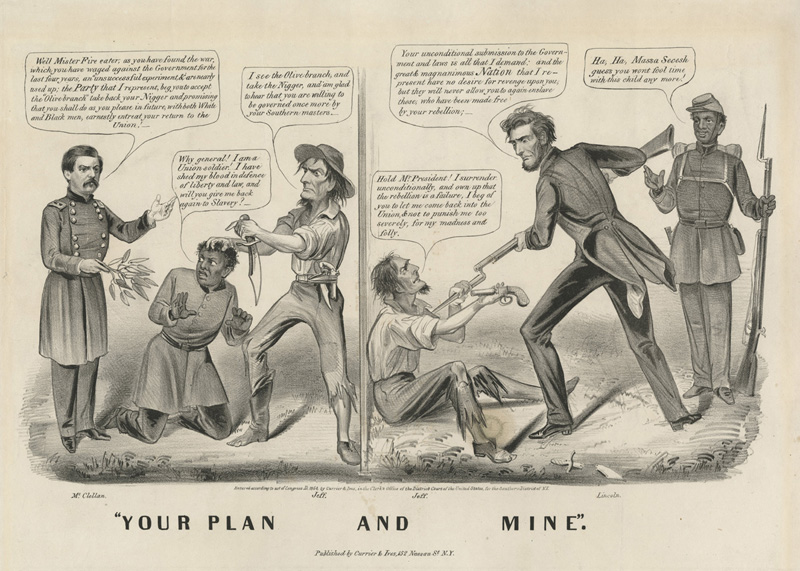|
Lincoln, Slavery, and the Declaration of Independence: Toward Resolution |
The Emancipation Proclamation ushered in full abolition, helped fulfill the promise of the Declaration of Independence, and rescued the nation’s founding philosophy of human liberty from charges of hypocrisy. As James Oliver Horton and Lois E. Horton note, the history of African Americans “both illustrates and contradicts the promise of America—the principles embodied in the nation’s founding documents.” Lincoln himself marked the paradox in 1855:
Our progress in degeneracy appears to me to be pretty rapid. As a nation, we began by declaring “all men are created equal.” We now practically read it “all men are created equal except negroes.” When the Know-Nothings get control, it will read “all men are created equal, except negroes, and foreigners, and catholics [sic].” When it comes to this I should prefer emigrating to some country where they make no pretense of loving liberty—Russia, for instance, where despotism can be taken pure, and without the base alloy of hypocrisy.
Lincoln believed that although the Founders did not accord black people social and political equality, they also did not expect the position of blacks in society to remain static. Lincoln argued that in the Declaration of Independence:
They simply meant to declare the right, so that the enforcement of it might follow as fast as circumstances would permit. They meant to set up a standard maxim for a free society, which should be familiar to all, and revered by all;…constantly labored for, and even though never perfectly attained, constantly approximated and thereby constantly spreading and deepening its influence, and augmenting the happiness and value of life to all people of all colors everywhere. The assertion that “all men are created equal” was of no practical use to our effecting our separation from Great Britain; and it was placed in the Declaration, not for that, but for future use.
|

|
|
Currier and Ives highlight the differences between the 1864 presidential candidates. |
The decision to emancipate had not come easily. Lincoln doubtless saw the war years as a time of particularly rapid transition toward this “free society,” and his Proclamation displays a degree of caution. Like most white Americans, he had doubts about how African Americans would fit into society as free citizens. Lincoln enjoined “upon the people so declared to be free to abstain from all violence, unless in necessary self-defense; and I recommend to them that, in all cases when allowed, they labor faithfully for reasonable wages.”
Next Page: Affirming Slavery’s Role in Precipitating the War
|